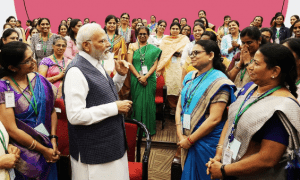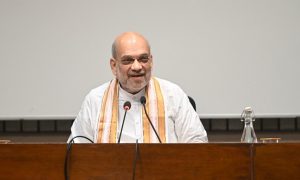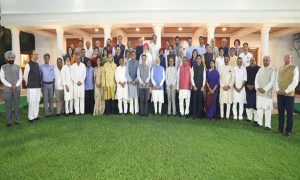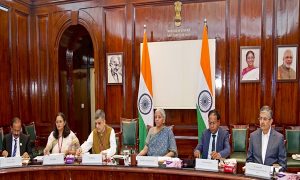National Education Policy, NEP 2020 lays out the path for transforming the Indian education landscape suited for the 21st century, said Dr Ramesh Pokhriyal Nishank, Union Education Minister, through a recent tweet.
To understand the entire structure, process and implication of NEP and know more about NRF and how it is going to help in building an Aatmanirbhar Bharat, PBNS had an exclusive chat with former ISRO chief Dr K Kasturirangan, the member of the committee for NEP and Prof. Chintamani Mahapatra, Pro-Vice-Chancellor, JNU.
“The National Education Policy (NEP 2020) will usher a major transformation and reinvigoration of the existing education system, as a response to the needs of a dynamic and vibrant knowledge society of the 21st century,” said Dr K Kasturirangan, Former ISRO chief and member of the committee for NEP.
The new National Education Policy was approved by the Union Cabinet is a revolutionary step in replacing the 34-year-old National Policy on Education framed in 1986. NEP under The National Research Foundation (NRF) proposes sweeping changes in school and higher education.
What is New National Education Policy (NEP) ?
The New Education Policy, launched by the Ministry of Education under the leadership of Dr. Ramesh Pokhriyal Nishank, has all the potentials to make Indian students prepared for the challenges of the 21st century.
“What is old, yet new, in the NEP is incorporations of ancient ideas and wisdom which have perennial relevance. Leveraging the traditional Indian knowledge for educating the masses was ignored earlier, but the NEP is the best amalgam of the best of Indian tradition and the modern innovations in the field of education” said, Prof. Chintamani Mahapatra, Pro-Vice-Chancellor, JNU.
The NRF is a grand pioneering mechanism to promote advanced research in all fields of social sciences, sciences and humanities. An independent agency dedicated to looking after all aspects of research is the call of the day when India is determined to turn the country into a knowledge society and a hub of the emerging global knowledge economy.
NEP a milestone for ‘Aatmanirbhar Bharat’
The new education policy is a major milestone in the making of an ‘Aatmanirbhar Bharat’, said PM Narendra Modi. He further added, “Gurudev Rabindranath Tagore developed systems at Visva-Bharati which were the medium of modernising Indian education and freeing it from the shackles of slavery”.
The Policy, duly, recognises the diversity, complexity and plurality of our society, its traditions, cultures and languages. The task of ensuring Universal access to an education of high quality and breadth, for supporting India’s continued ascent, progress and leadership, on the global stage is central to this formulation.
Top 100 foreign universities will be given special dispensation regarding regulatory, governance, and content norms on par with other autonomous institutions of India.
“Globalisation and demands of a knowledge economy and knowledge society call for an emphasis on the need for acquisition of new skills by learners regularly, for them, to learn how to learn and become lifelong learners- a critical consideration to be addressed appropriately” Dr. K Kasturirangan, further added.
NEP is an impactful, interactive, innovative and inclusive way to build on the cornerstone of equity, quality and access. This new policy supports vocal for local and local for global.
How NEP is going to benefit the students?
Dr. K Kasturirangan, member of the committee for NEP, while highlighting the changes after the implementation of NEP said, “Changes in the knowledge landscape especially science and technology advances like big data analytics, machine learning, artificial intelligence – all demand a skilled workforce involving mathematics, computer science, data science as well as multidisciplinary abilities across the sciences, social sciences and humanities”.






















 WhatsApp us
WhatsApp us